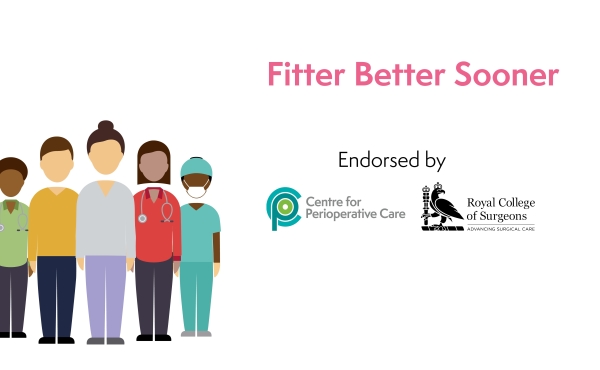Prevention and perioperative care

President of the Faculty of Public Health and CPOC Board Member
I was delighted to see the Centre for Perioperative Care (CPOC) start work on a new ‘Green Paper’ exploring the future of how surgery is delivered in the UK.
As President of the Faculty of Public Health I am keen to support every part of the health and care system in delivering better prevention and taking a population health approach to service provision.
Whilst most of the factors that impact our health occur outside of formalised healthcare settings, we know that the NHS has a key role to play in prevention. But we also know that the NHS’ ‘radical upgrade in prevention’ has been slow to materialise – despite the best efforts, expertise and goodwill of staff who believe in this agenda.
The current NHS Long Term Plan for England provides welcome commitments to prevention, but still falls short of the step-change that is needed to support the NHS to shift towards a more prevention-focused service.
At FPH, we have done a lot of work exploring how to support the NHS to deliver more prevention. In 2018, we polled over 300 NHS leaders to better understand their prevention priorities. We asked respondents to look at a ‘long list’ of ways the NHS currently delivers on the prevention agenda and choose the ‘top 5’ areas that they believed their local NHS should prioritise.
This is what they told us:
- Delivering a systems approach to prevention (64%)
- Embedding prevention into routine clinical practice, e.g. through programmes like Make Every Contact Count (45%)
- Embedding prevention into clinical and/or patient pathways (43%)
- Reducing health inequalities (39%)
- Addressing common risk factors, e.g. smoking or alcohol (29%)
For the NHS to effectively deliver on all these areas of prevention would require a shift in mindset and attitudes, alongside significantly more funding and greater partnership working.
Since the survey, much has changed in the healthcare and public health landscape, and we do hope that a strong role for local and regional Directors of Public Health within ICSs may lead to deeper collaboration and a more holistic approach to prevention.
Looking at the results of our survey, it is clear that perioperative care pathways which wrap around the needs of the patient would bolster the NHS’s role in delivering on the prevention agenda.
Take, for example, the diabetes guidelines that CPOC recently developed for people with diabetes undergoing elective and emergency surgery. Recognising that the care for people with diabetes has been fragmented due to, among other things, siloed working, the guideline supports partners in community, primary and secondary care to deliver more joined-up care. I was particularly pleased to read the section on utilising preoperative assessment as a teachable moment to improve physical and mental health by addressing common risk factors. This is exactly the kind of mindset that we in public health want to see the NHS embrace.
Our polling also found that the top barriers to delivering prevention at a local level included lack of funding, lack of integration of prevention into core services, system capacity issues, prevention not being seen as part of the core remit of the delivery organisation, and a lack of partnership working - many of the same barriers which stand in the way of delivering quality perioperative care.
FPH would like to see CPOC’s perioperative care Green Paper explore some solutions to those barriers, and would encourage our members to engage with the Green Paper.
There is a critical role for public health professionals to play in addressing these issues – but this role needs to be better defined, with more examples and case studies showing the impact that public health teams can have on designing, commissioning and supporting integrated perioperative pathways.
I would encourage FPH members reading this, or anyone working in local authority or community public health settings, to engage with this Green Paper consultation and the work of CPOC. You can do so by emailing cpocgreenpaper@rcoa.ac.uk




